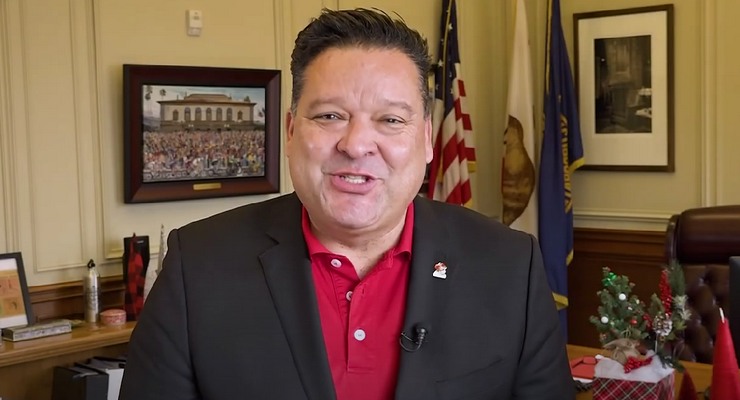
The City Council voted 5-3 to change language in a resolution that calls for Governor Gavin Newsom to recognize the impact of the rising insurance rates.
The draft resolution called on Newsom to declare a state of emergency on the matter.
Placer County, San Bernardino County, San Mateo County and Shasta County have also called for the governor to declare a state of emergency as “an urgent call to secure a fair, stable insurance market that keeps our communities safe and resilient in the face of an increasingly unpredictable climate future,” according to Siliconvalley.com.
But while the members of the council agreed that the issue is a serious problem, they did not understand what would happen if Newsom declared a state of emergency.
“We don’t even know what we are asking for,” said Councilmember Jason Lyon, who called for the removal of language declaring a state of emergency and instead called for language asking the governor to recognize the situation as a “crisis.”
Lyon, with Councilmembers Justin Jones, Jess Rivas, Gene Masuda and Vice Mayor Steve Madison, voted in favor of striking the call to declare a state of emergency for the ordinance.
The ordinance will now go back to the City Council’s Legislative Policy Committee.
“This language does not legally apply and there is no precedent for it,” Madison said.
Madison said he felt uneasy because the resolution skipped the Los Angeles County Board of Supervisors.
Madison looked at 20 years of emergency declarations and said he could find no instance where a state of emergency was declared in a situation like the insurance crisis.
“We really should lend our voice. Sometimes we are called upon to bring attention to issues,” said Mayor Victor Gordo.
Any resolution passed by the City Council, no matter the language, will only be a symbolic action.
Just as the City Council has no federal powers when it took a stance on Middle Eastern conflict this year, it has no state legislative power in matters regarding the increasing insurance costs.
Councilmember Tyron Hampton asked the item be agendized after hearing from several constituents. Hampton declared several times on Monday that the situation is an emergency.
And many residents may agree with him.
State Farm has stopped writing new policies for California homeowners and Allstate has limited its policies going forward. The Department of Insurance approved rate increases totaling 34% and 30%, respectively.
According to media reports, those actions were taken due to a number of factors, including the rising cost of rebuilding homes and the increasing frequency and severity of natural disasters, including wildfires.
Several other insurers have also announced plans to limit new policy offerings.
Allstate is California’s fourth-largest insurer in the state and provides coverage for 350,000 homeowners.
In September, State Farm projected that it could drop more than 1 million California policies over the next five years due to impending financial instability.
The San Francisco Chronicle reported that June filings submitted to the California Department of Insurance found that if the insurance company continues to decline, its sector involving property insurance, comprised of homeowner’s insurance and business liability, could face a total policy count drop from 3.1 million to under 2 million in just five years.
The draft resolution, which highlights the urgent need for regulatory reforms, calls on state officials to take immediate action to stabilize the market for both residential and commercial property insurance.
“Access to property insurance is essential to homeowners to protect what is for many their largest and most important asset, and is necessary for homebuyers to secure a mortgage for a home that can build generational wealth,” according to the resolution.
“But a scarcity of options may freeze real estate transactions and slow or stop the rate of new affordable housing, including accessory dwelling units and other affordable housing options, exacerbating the State’s critical housing shortage and particularly impacting the most vulnerable, including young families and those on fixed incomes.”
The resolution cites concerns that reduced insurance options are leading to higher premiums and policy cancellations, making it difficult for residents and small businesses to obtain necessary coverage. Many have been forced to seek policies through the California Fair Access to Insurance Requirements (FAIR) Plan, which is designed as a last resort for those unable to secure traditional insurance. However, premiums under the FAIR Plan can be significantly higher, pushing some homeowners and business owners to the brink of selling their properties.














 5 comments
5 comments


